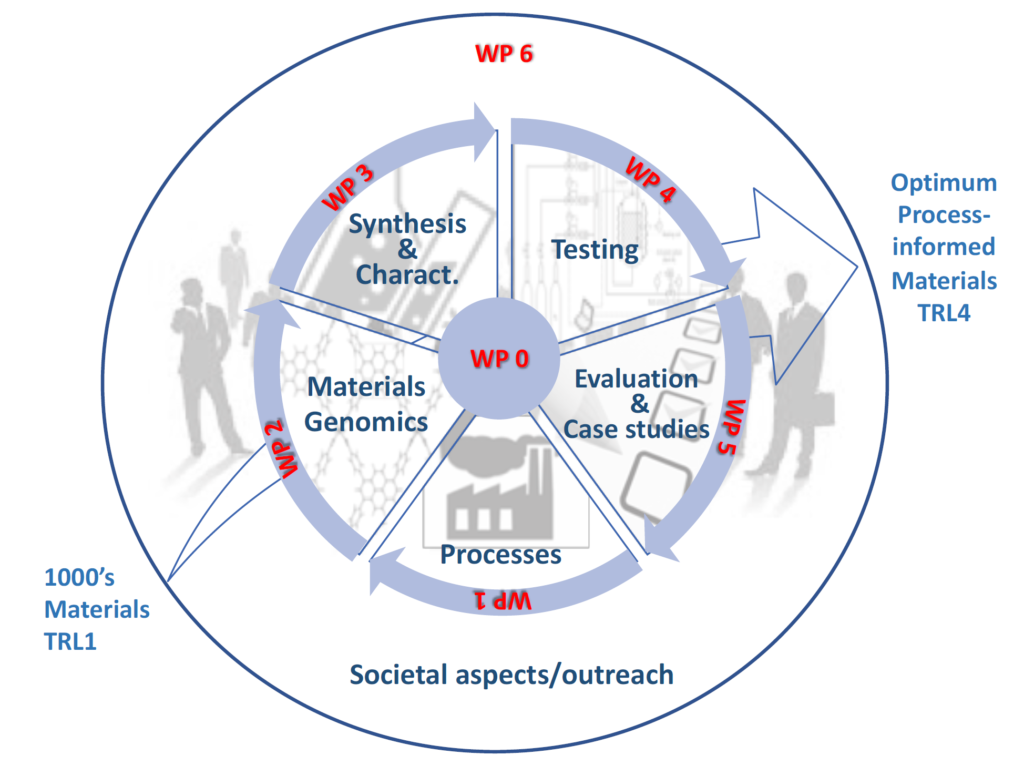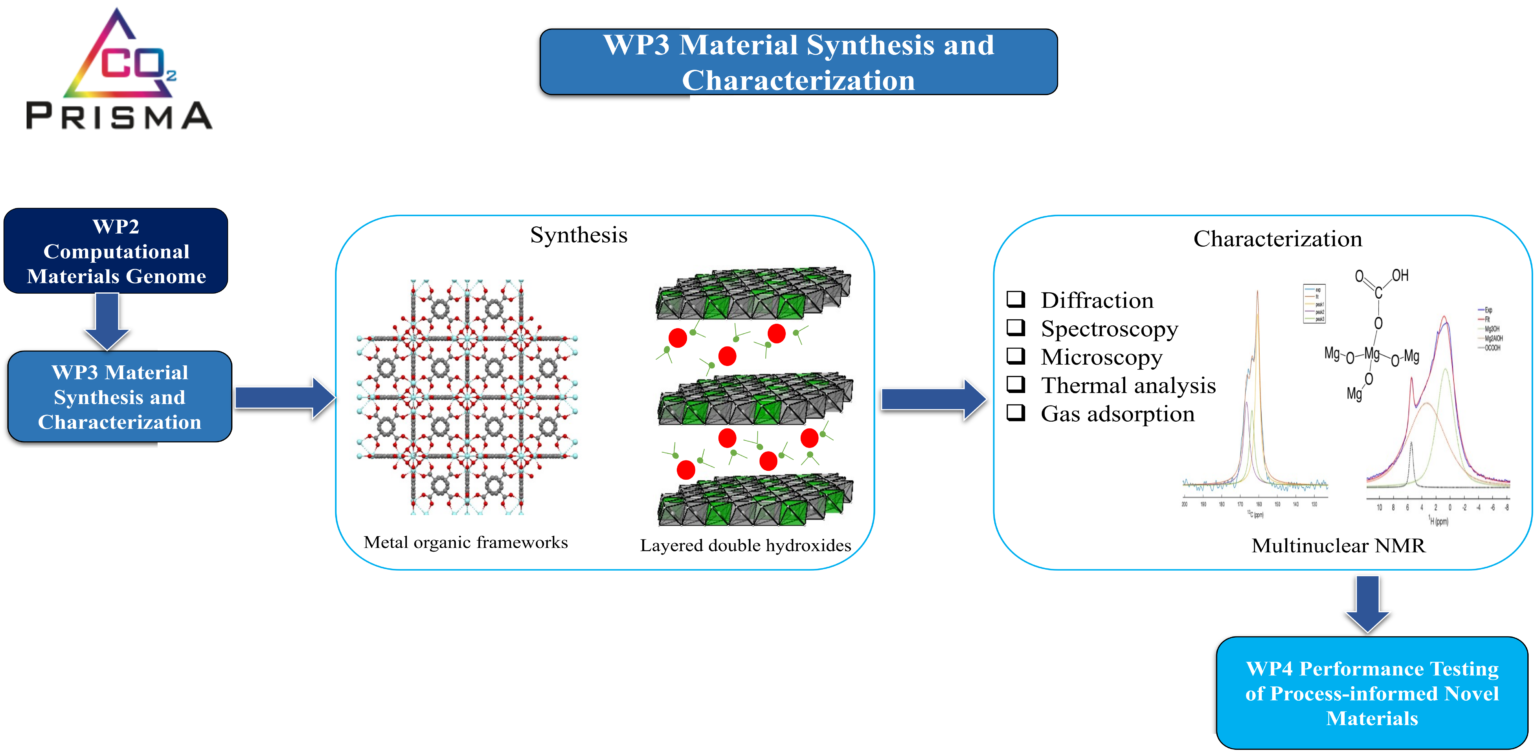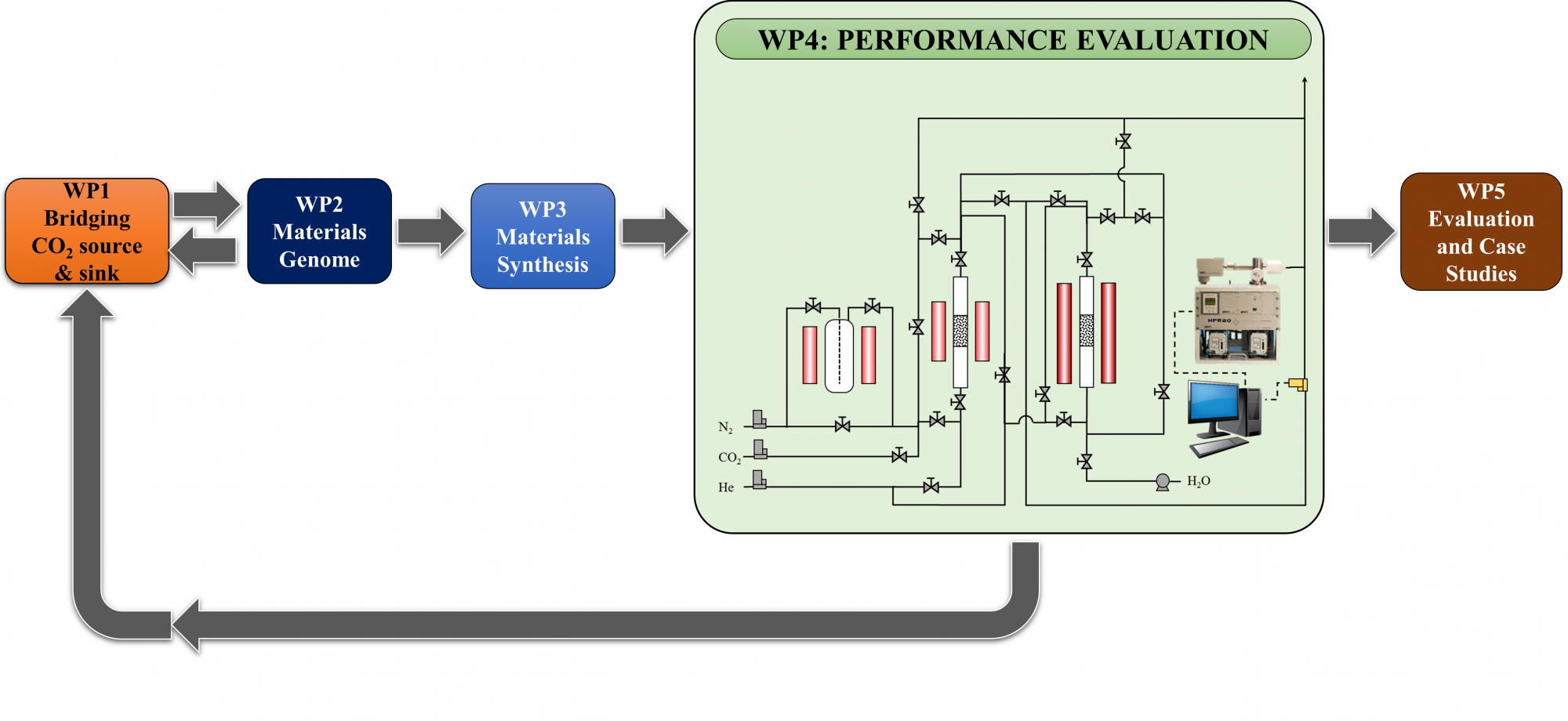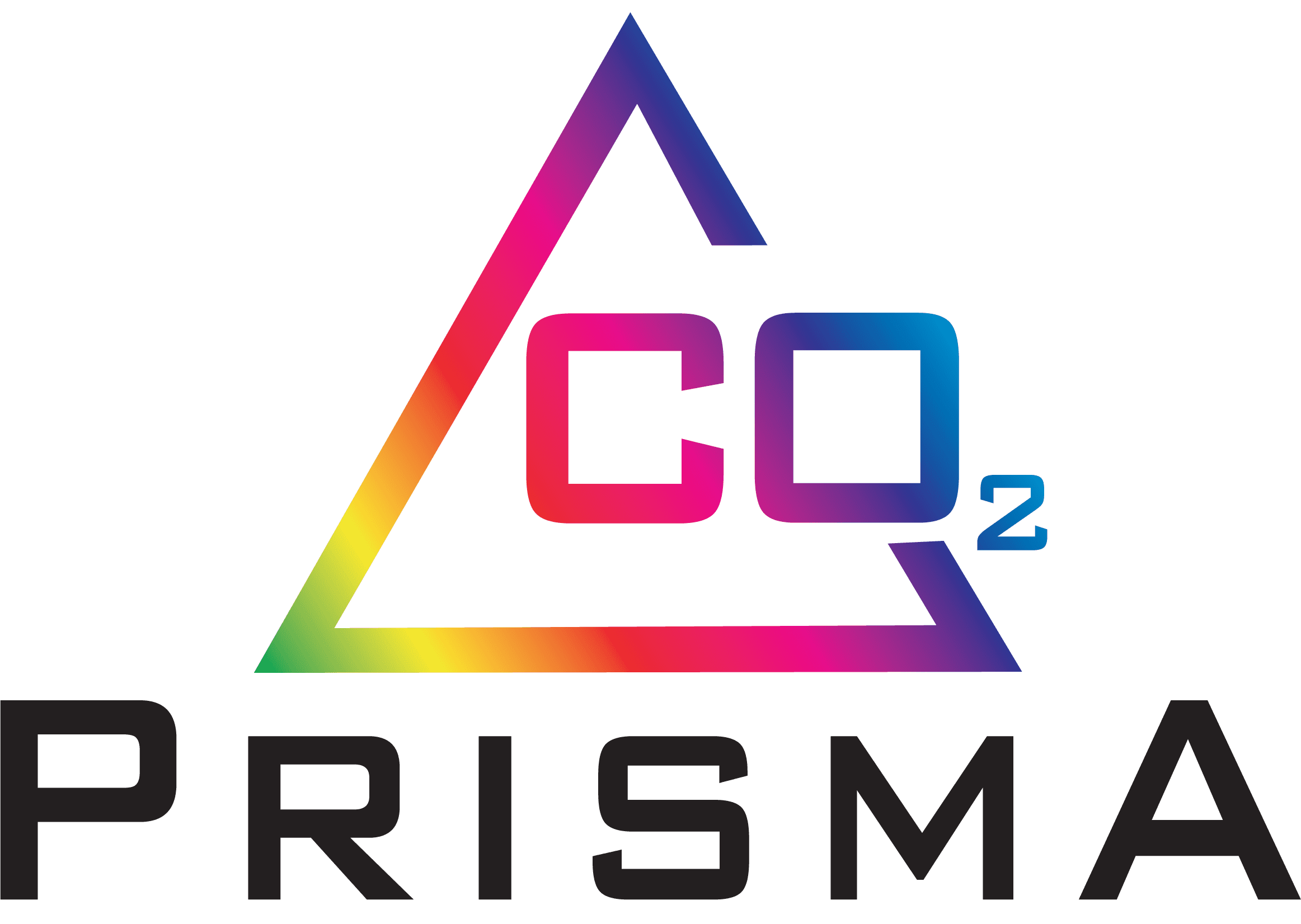
WP0
Monitoring and Management of the project (HWU): project management and monitoring, health and risk management, research data management and dissemination of results.
WP1 & WP2

The PrISMa technology platform takes into consideration the different CO2 sources and CO2 sinks and by bridging material science and process engineering, it identifies the most promising materials for specific applications. It achieves this by bridging molecular simulations (WP2) with process modelling (WP1) to screen thousands of adsorbent structures and rank them for a given set of process metrics. The ultimate task of this work is to integrate a techno-economic tool for material screening.
WP3

WP3 involves the research groups from Heriot-Watt University (HWU), Lawrence Berkeley National Laboratory (LBNL) and École Polytechnique Fédérale de Lausanne (EPFL). In this WP, promising novel sorbent materials that have been molecularly found to be optimal for a given separation (Identified in WP1 & 2) will be synthesized by efficient high-throughput methods and characterized using advanced analytical technique. Two different kinds of CO2 sorbents, Metal Organic Frameworks (MOFs) and Layered Double Hydroxide based Mixed Metal Oxides (MMOs) will be evaluated. The complementarity nature of MOFs (low temperature) and MMOs (medium-high temperature) makes it possible to tailor-make materials for CO2 separations across a wide range of temperatures, which is required when targeting different CO2 sources.
WP4

WP4 of PrISMA is carried out at HWU. We are responsible of creating universal protocol to screen any adsorbent for the separation processes identified in WP1. Under PrISMA, the materials synthesised and characterised in WP3 are tested using the protocol developed to screen and evaluate them for real CO2 capture in a dynamic rig lab scale system designed in this project. With this set up we are able to evaluate materials for a completely different operational conditions that recreates most of the processes identify in WP1. Finally, it will be possible to determine all the main parameters for scaling up the processes in a higher TRL level.
WP5
This WP led by HWU and supported by all partners aims to evaluate the results obtained from WP2-4 on the basis of the selected KPIs defined in WP1. The aim of the work package is to assess the impact of novel materials has on the different metrics underlying the effective carbon price and make a recommendation on those separations that would be a candidate for a TRL5 study.
WP6
This WP aims to address the societal perception of sorbent-based CO2 capture processes, and CCUS technologies in general. All the activities conducted in the WP focus on outreach to all relevant stakeholders.
